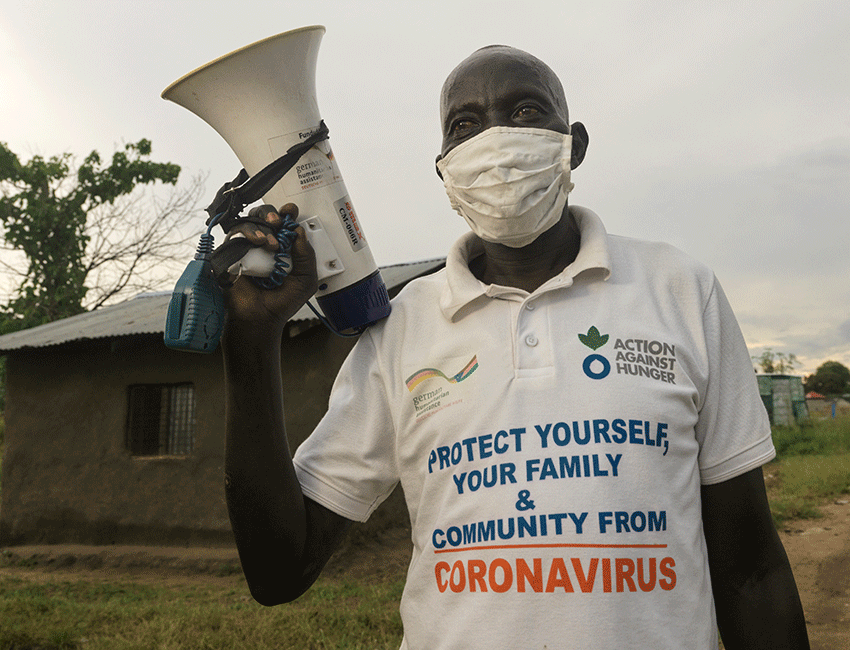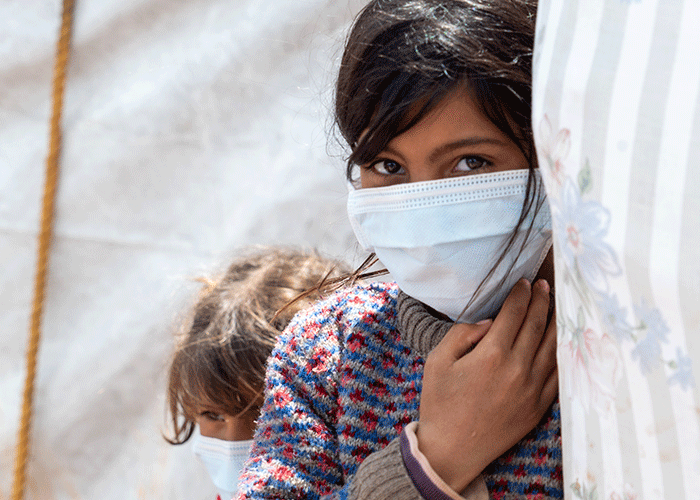During a pandemic of this scale, going to crowded areas, visiting homes and meeting people are all risks that should be avoided. But for Action Against Hunger volunteers like Tondrua, this is a daily reality.
Tondrua is a 52-year-old teacher from South Sudan’s capital, Juba. When the pandemic hit in March, the school he worked at closed and he lost his job.
“I felt that everything happened too quickly and suddenly I was stuck at home. As the time passed, I felt redundant and idle,” explains Tondrua.
Lockdown restrictions in Juba had a huge impact on households’ incomes. Vegetable sellers, small roadside eateries, street vendors and many others simply couldn’t get by and the country’s economy sharply declined.
“During the first two months, markets were closed, shops were closed and the economy was not so good. With this insecurity, I wanted to be able to help my family, but I also wanted to feel that I’m doing something for my community. That’s why I committed myself to raising awareness of Covid-19.”
Local hero
In September, Tondrua decided to join us as a coronavirus awareness-raising volunteer. With a low Covid-19 testing capacity and a fragile healthcare system, the country’s best hope against the virus is prevention. Awareness raising has become one of the main tools to prevent the virus spreading in South Sudan and local heroes like Tondrua made this approach possible.
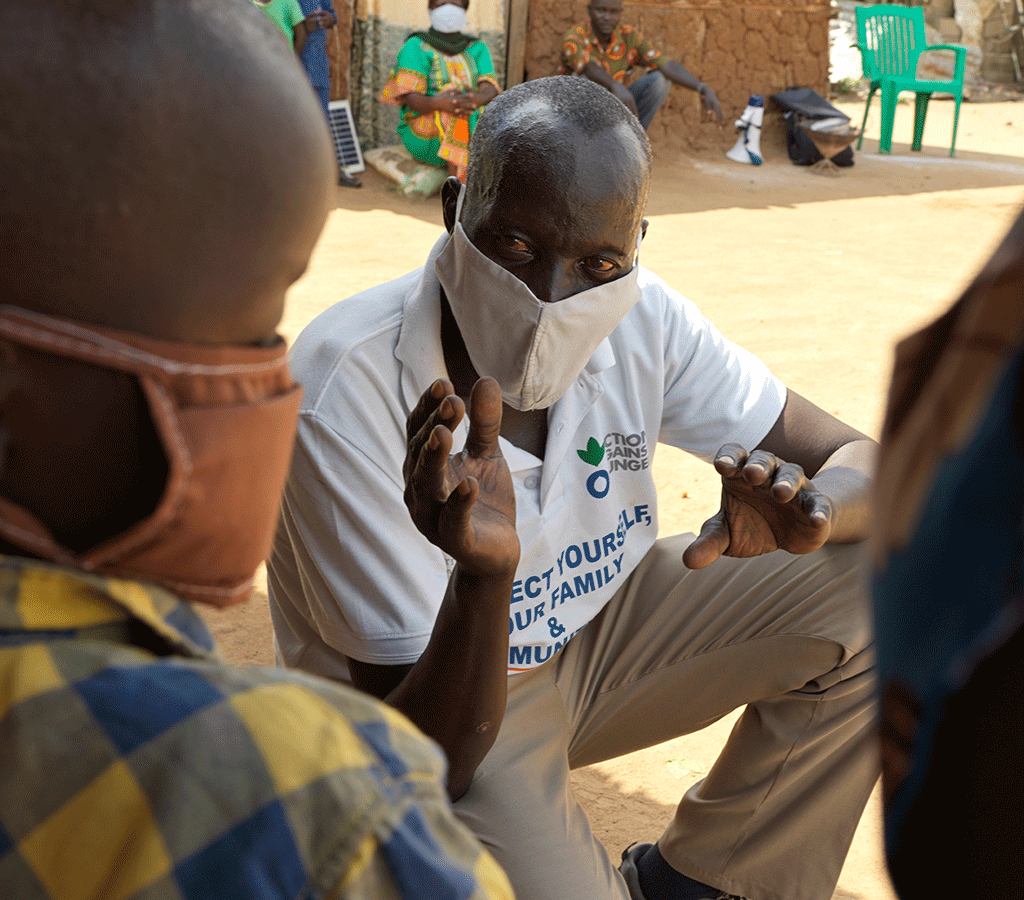
“People here live in a communal way where you embrace each other, so it was not easy when the new message was that we should not gather or greet,” says Tondrua. “But that’s what we need, and if they don’t hear it from us how are people going to know how to protect themselves?”
“As a volunteer, I raise awareness by going door-to-door to speak to different households. I also track the water filling in every washing station, register how many people are washing their hands at the stations and help put together the Covid-19 quarantine kits,” explains Tondrua.
In South Sudan, some people fear the virus and others don’t believe it’s real.
“Some people don’t accept that Covid-19 is real,” explains Tondrua. “But many of them accept that it is and they usually welcome us when we visit their homes to teach them how to wash their hands correctly and how to protect themselves,” he continues. “In the markets, when I move with my megaphone people are curious and come to ask me to explain more.”
Most people also can’t afford to stay home if they test positive for the virus. That’s why we’re working with our volunteers to continue spreading the message to stay home. We’re also supporting families with quarantine kits to allow them to isolate for 14 days when anyone receives a positive coronavirus test.
Each kit provides enough food to last a month, as well as other essential items like soap, sanitary pads, chlorine tablets, basins, seeds and coal for cooking.
Protecting the community from Covid-19
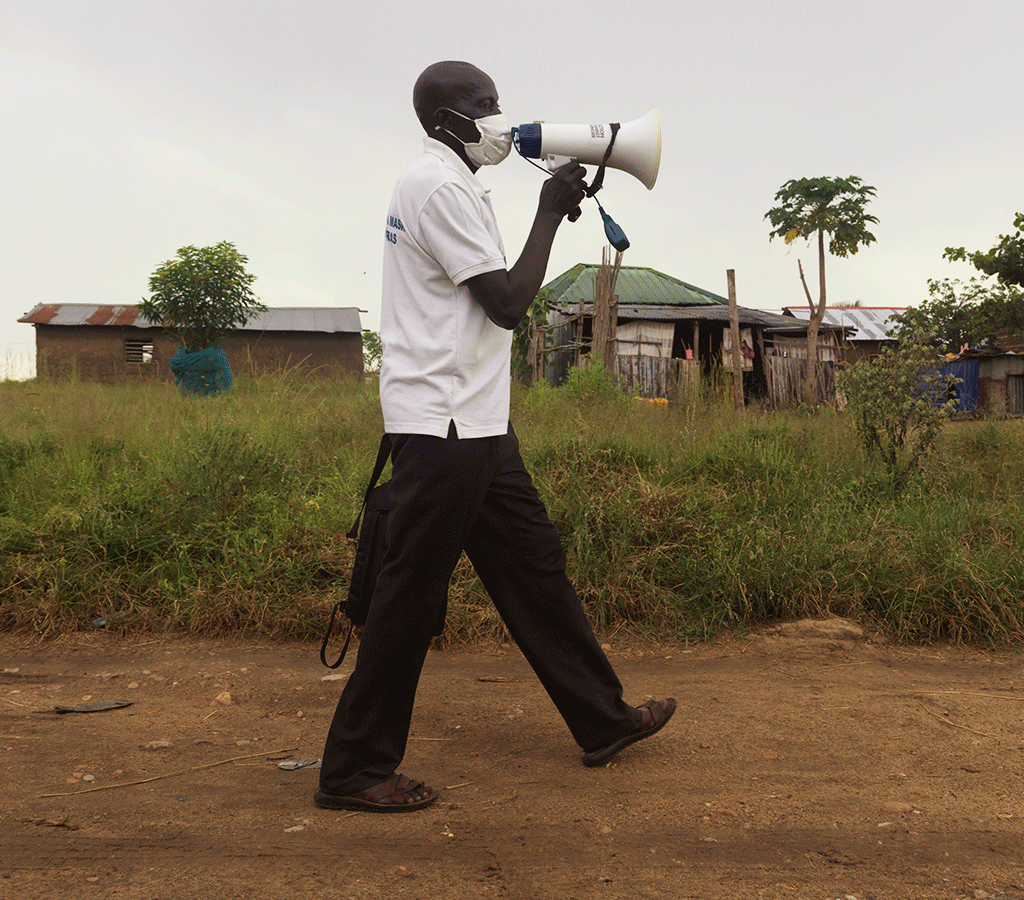
Life in South Sudan before the pandemic was hard. Conflict has diplaced nearly 4 million people and half the population faces food shortages. Covid-19 has worsened the food security crisis, but people are still on the streets trying to make enough money to eat. When Tondrua is raising awareness of Covid-19 community people would often tell him “we don’t care about coronavirus, we care about hunger.”
Our volunteers are helping reduce the risk by spreading awareness about best hygiene practices and preventing entire families from going into quarantine.
“I’m used to educating people,” says Tondrua. “My work ethic motivates me to go house-to-house creating awareness.”
“My family feel good that I’m busy and helping livelihoods and I also feel good that I work near to my home so I can protect them.”
Tondrua visits up to 20 households every day and meets up to 150 people at the five handwashing stations he oversees in the Gumbo district of Juba.
“I’m not scared of Covid-19 because I take preventive measures to protect myself,” says Tondrua.
“My neighbours know that I’m volunteering for Covid-19 and they feel positive about the awareness because they think I’m important to the community,” explains Tondrua.
“When I’m busy I feel happy and my volunteering work keeps me like that. My proudest accomplishment is that the communities are practicing those preventive measures and they are paying attention to the message.”
DEC Coronavirus Appeal
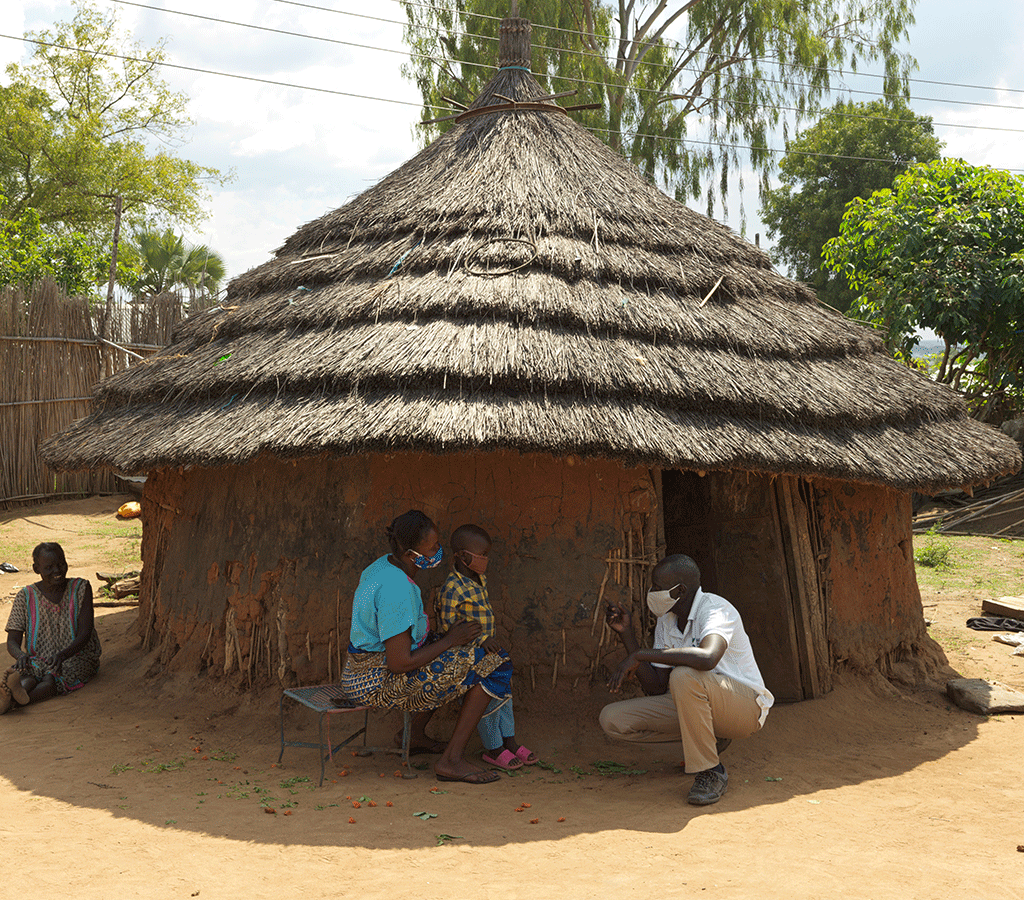
As one of the 14 member charities of the Disasters Emergencies Committee (DEC), we’ve been responding to the world’s worst humanitarian crises for decades. Thanks to the DEC Coronavirus Appeal launched in 2020, we’ve been able to support local heroes like Tondrua to raise awareness and prevent the spread of the virus in vulnerable communities.
“I have seen how important awareness is to educate and protect people, so after Covid-19 I would like to study more about disaster management and risk awareness,” says Tondrua. “If I learn more, then the next time I will be more prepared to help.”

